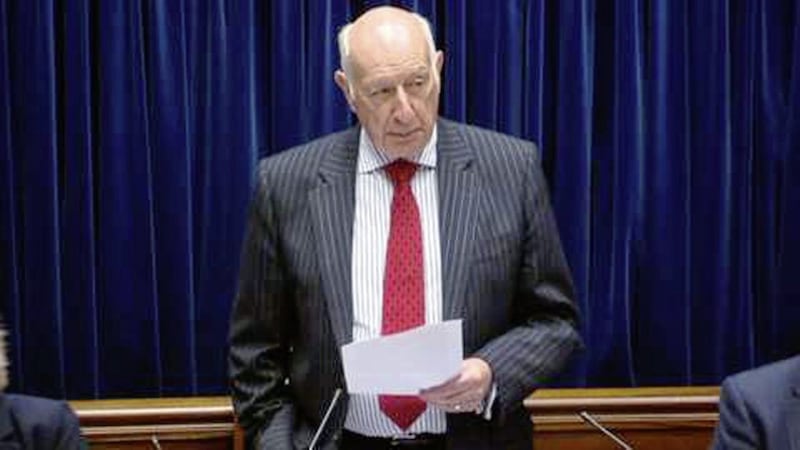IF Sinn Féin and the DUP are finding it so difficult to agree on Stormont's very existence, how much genuine agreement was there in the Good Friday Agreement, the St Andrews Agreement and the Fresh Start Agreement?
Does the political intransigence of the past 10 months suggest that on all three occasions, the parties merely agreed that each side would have the right to claim the outcome as a victory and use it for electoral support?
A cynical view certainly, but no more cynical than 90 MLAs claiming their salaries for doing nothing.
As Stormont hovers between life and death, it is hard to avoid the conclusion that the three agreements now appear to be somewhere between flawed and fraudulent.
You might regard this view as political sacrilege, because no-one dares to criticise our hierarchy of three sacred political texts, headed by the Good Friday Agreement.
Many who previously praised Stormont now tell us it has failed. But few suggest that its failure (and it is likely to fail whether it returns or not) stems from the fact that the Good Friday Agreement (GFA) and its successor agreements were more style than substance.
As the Irish language, born before Christ, becomes a newly-created symbol of Christian division, perhaps it is time to ask if the agreements have failed and if the peace process is just sectarian war by another means
The only problem with the GFA, you might say, is that SF and the DUP are not implementing it properly. You have a point, but if an agreement leaves such scope for abuse and causes such sectarian division, what has been agreed?
The GFA claimed that the war here was between two nations - one aligned to London, the other to Dublin.
This was a radical departure from the traditional nationalist stance that division between unionists and nationalists was a centuries-old British ploy to maintain political control here.
Although this new analysis came from within the SDLP, who later sold it to Sinn Féin, it was more Catholic than nationalist in origin.
It argued that the solution to our sectarian war was a sectarian accommodation. That analysis is the root of the current impasse at Stormont.
By rewarding sectarianism, the GFA encouraged minimal political co-operation between elections and maximum division during them. Almost twenty years on, that division has never been greater.
Most who supported the GFA believed they were voting for peace, but peace had already arrived because of war weariness within the IRA and the general public.
The peace was welcome, but the GFA political model has failed to deliver. Few can deny that it has not worked in 20 years, even with two additional agreements thrown in.
Compared to 1998, our education system is poorer, our health service is collapsing, social services have been decimated and we have the worst social housing crisis since the civil rights movement.
The British government offered no additional money for Stormont, but it copied Aneurin Bevan's policy when he established the NHS. Asked how he convinced doctors to join the scheme, he said he stuffed their mouths with gold.
Britain allowed MLAs to stuff their own mouths with gold, which explains why the Assembly speaker can claim £86,000 annually for a non-existent job and the Principal Deputy Speaker could claim £55,000 annually without even standing for election.
Cynicism, how are you?
Britain addressed the first failure of the GFA by creating the conditions for the sectarian extremes to enter government under the St Andrews Agreement in 2006.
It stipulated that MLAs had to be designated as unionist or nationalist, thereby effectively banning normal politics of left and right from the Assembly.
Fuelled by lots of chuckling, it was a logical extension of the GFA. but it too failed to deliver. That led to the Fresh Start Agreement, after ten weeks of talks.
It promised an end to paramilitarism and more stringent control over Stormont's finances, just as applications were building for money under the RHI scheme. Another agreement, another failure.
Unable to move forward, we are unwilling to re-examine the cause of our political impasse.
In a form of perpetual Purgatory, we are destined to complain forever, imprisoned by a situation of our own making and which we refuse to address. If there are political gods up there, they certainly know how to punish us. Or maybe we are just punishing ourselves.
Either way, the traditional analysis of Britain's role in Ireland would suggest that as the British establishment looks across the Irish Sea, it will be very pleased with the success of its traditional policy in Ireland.








